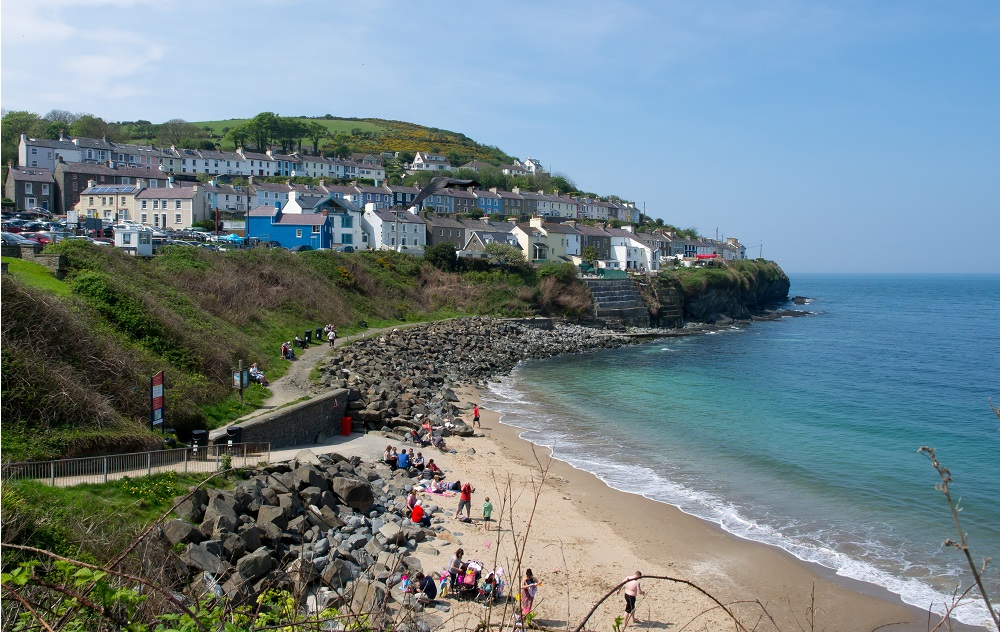House prices least likely to fall in Welsh language heartland ‘because of high number of second homes’

House prices are least likely to fall in a Welsh language heartland because of high number of second homes means there are more cash buyers who would be insulated from rising interest rates, according to estate agents.
Hamptons analysed which parts of the UK were likely to be insulated against falls in house prices as the heat went out of the housing market due to higher interest rates and the cost of living crisis.
They found that Ceredigion, where 47.35% spoke Welsh according to the last published census, fitted the bill – because of the large numbers of cash buyers buying second homes in the area.
In Ceredigion, 54pc of buyers purchased in cash in 2021, they found.
The number of cash-rich buyers snapping up properties also meant that proportionally fewer people could be squeezed by rising mortgage costs and forced to sell up, also protecting house prices in the area, Hamptons said.
The findings come as the Bank of England is expected to announce its fourth consecutive interest rate rise on Thursday, bringing the Bank Rate to 1pc, increasing mortgage costs for homebuyers and slowing the growth in house prices.
‘Contribution’
In Wales, local authorities will be able to set council tax premiums on second homes and long-term empty properties to 300% from April 2023.
The criteria for self-catering accommodation being liable for business rates instead of council tax will also change at the same time, from 70 to 182 days.
The Senedd debated the issue of second homes this week, with the Welsh Conservatives saying that the Welsh Government’s actions were a “blunt instrument that’ll end up as a hammer blow to the tourism sector instead”.
“And the key reason for that is the Welsh Government has either been unable or unwilling to make a distinction between second homes and self-catering holiday lets,” Senedd Member Tom Giffard said.
“This means that many normal people across Wales who let out flats, houses and cottages to visitors will be completely unable to meet the new threshold and it will price them out completely of ever being able to afford to offer visitor accommodation to people across Wales and internationally.
“And that isn’t a political argument; that’s something that’ll impact real tourism operators here in Wales.”
But Welsh Government Finance Minister Rebecca Evans said that the aim was to ensure that second home owners “make a fair contribution to the communities in which they have homes or run businesses”.
“This in turn is part of our three-pronged approach to addressing the impact that large numbers of second homes and holiday lets can have on communities and the Welsh language,” she said.
“The views conveyed in the consultation, including from the wider tourism sector, clearly support a change to the criteria for self-catering accommodation to be classified as non-domestic.
“Responses indicated that genuine holiday accommodation businesses would be able to satisfy increased letting thresholds and a wide variety of possible alternatives were suggested.
“Increasing the thresholds will provide a clearer demonstration that the properties concerned are being let regularly and are making a substantial contribution to the local economy.”
Support our Nation today
For the price of a cup of coffee a month you can help us create an independent, not-for-profit, national news service for the people of Wales, by the people of Wales.





